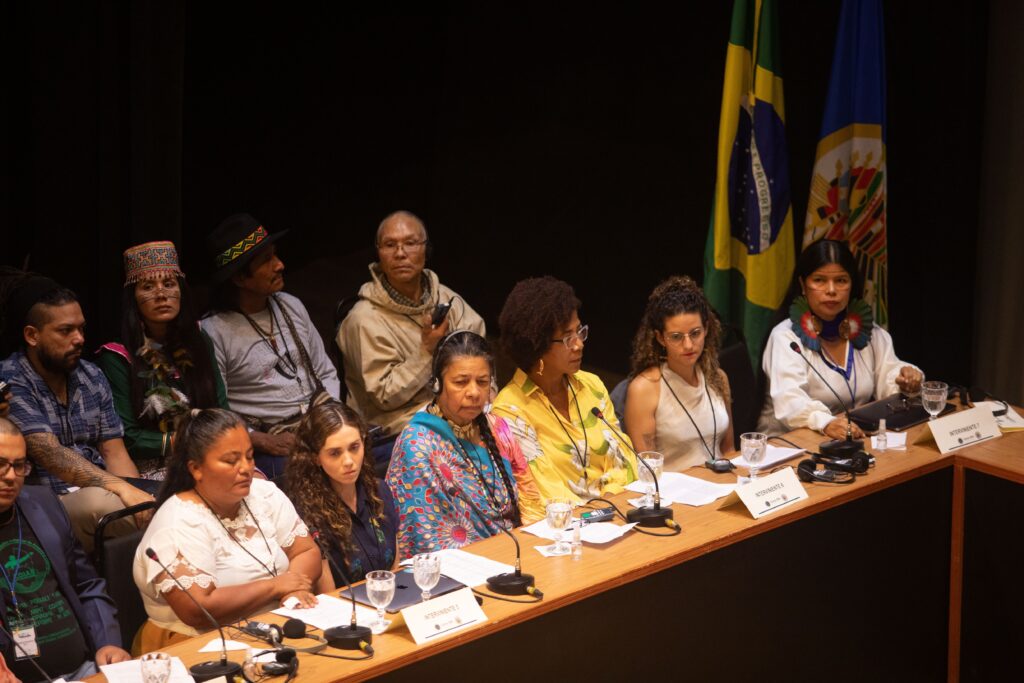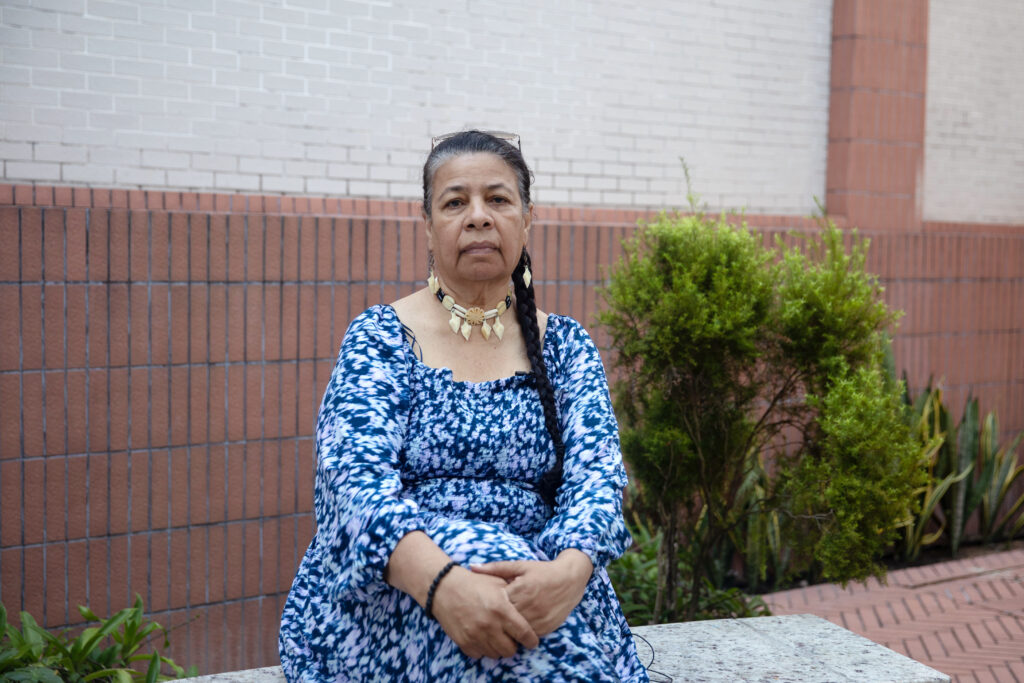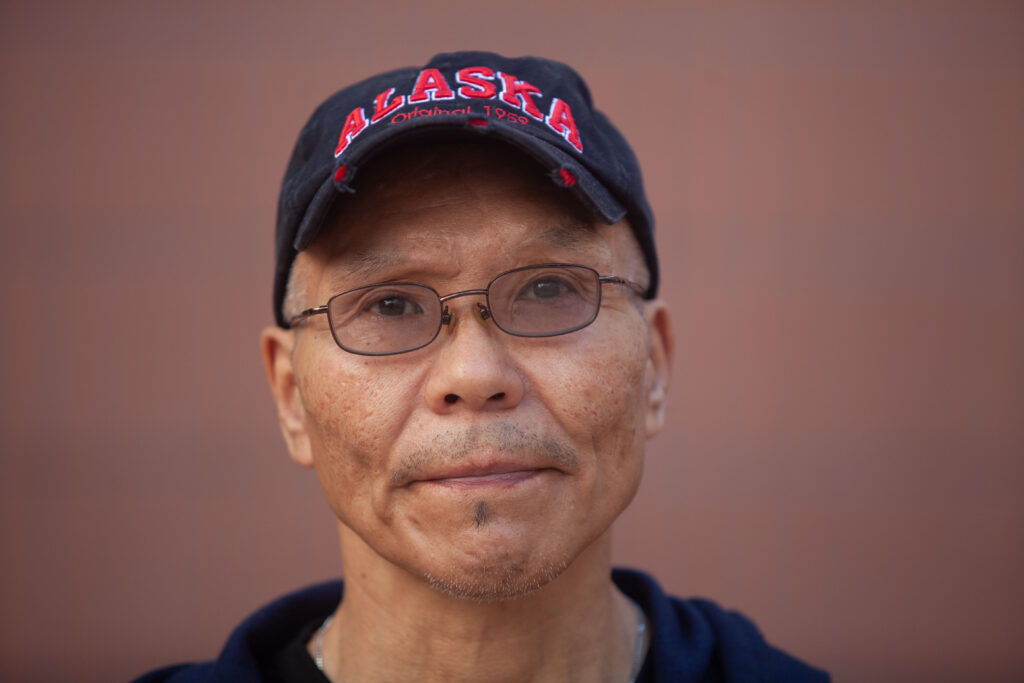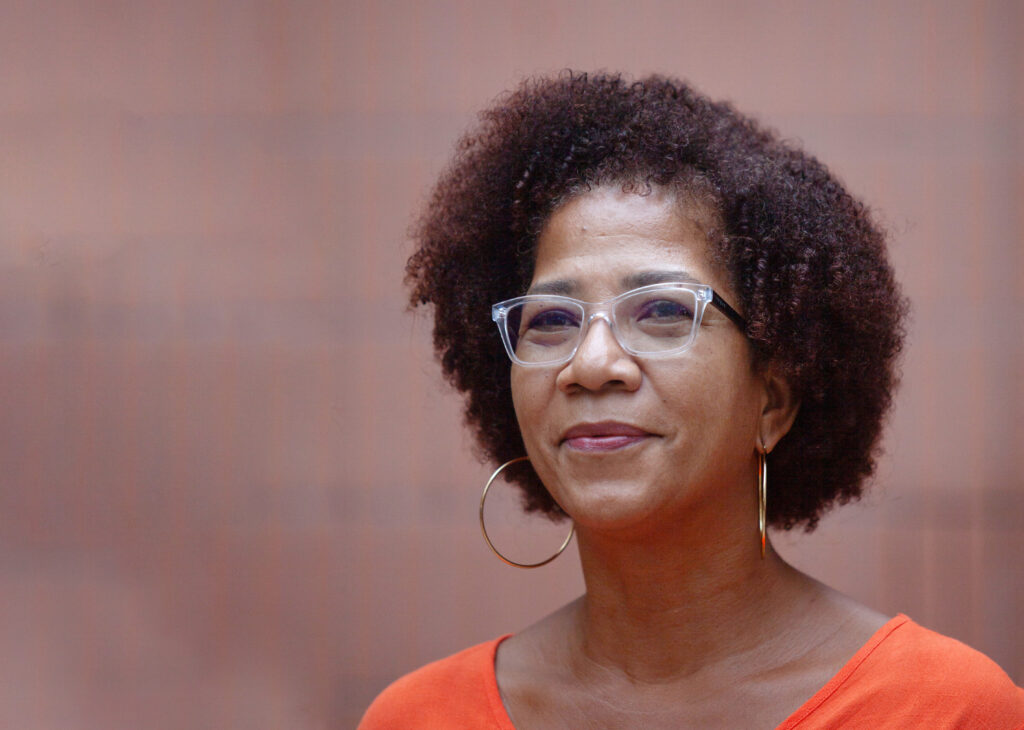Indigenous, rural, and Afro-descendant community leaders, spanning from Alaska to the Amazon, are urging action from the Inter-American Court of Human Rights (IACHR Court) to protect vulnerable populations from the escalating climate crisis.
The IACHR Court recently concluded public hearings for its landmark advisory opinion on States’ obligations to address the climate emergency and uphold human rights. Ahead of these hearings, EarthRights submitted an amicus brief to the IACHR Court on behalf of a coalition of 25 Indigenous and tribal communities and organizations from the United States, Colombia, Brazil, Ecuador, Peru, Guatemala, and Honduras. The brief highlights the severe human rights and environmental impacts of climate change on their regions, which jeopardize biodiversity and the very existence of communities.

Voices from the frontlines
Indigenous and tribal leaders from Louisiana, Alaska, and Colombia testified before the IACHR Court during its hearings in Manaus, Brazil, emphasizing the dire human rights repercussions of climate change in their communities. While the United States is one of the worst contributors to the climate crisis, Indigenous communities contribute the least to these emissions and bear the brunt of its impacts, including imminent threats of displacement.
In southeast Louisiana, Indigenous territories face a land loss crisis due to wetland destruction by the oil and gas industry and levee building combined with the impacts of climate change. In Grand Bayou Indian Village, home to the Atakapa-Ishak Chawasha Tribe, the lands the Tribe have stewarded for millennia are disappearing. The threats to Grand Bayou are compounded by a coastal protection project that will sacrifice the Village to build land on a wealthier part of the coast, and construction of one of the world’s largest liquefied natural gas (LNG) plants just 3 miles away.
“The government ignores our concerns. Their response is to offer buyouts of our lands. They are treating our lifeworld just as real estate, not taking into account our centuries of inhabitation, our lifeway, and all that our people contribute to the stewardship of the region,” said Rosina Philippe, Council Elder of the Atakapa-Ishak Chawasha Tribe in the Grand Bayou Indian Village, to the IACHR Court. “Continuing to commodify our resources threatens genocidal impacts. Everything that makes us possible is at stake.”

Meanwhile, in western Alaska, rapid Arctic warming has led to the thawing of permafrost, endangering vital infrastructure and livelihoods. The Alaska Native people of the Central Yup’ik Culture have known for a decade that their homes in the Native Village of Nunapitchuk are no longer safe. They were a nomadic people since time immemorial, until the U.S. government built Nunapitchuk in the early 1900s without consultation and forced them to live there under threats of imprisonment and taking children away. The Tribal government of Nunapitchuk passed a resolution to relocate to higher ground, but the federal government has refused to help.
“The government puts the burden on us to justify why we need to be safe,” said Morris Alexie, Permafrost Pathways Liaison and former Tribal Administrator for the Native Village of Nunapitchuk, to the IACHR Court. “The government puts us in danger by forcing us to move to Nunapitchuk which means the government bears responsibility for giving us healthy lives.”

Everildys Córdoba Borja, a leader from Acandí, Colombia representing the Community Council of Black Communities (COCOMASUR), also addressed the IACHR Court, detailing the environmental degradation and social upheaval caused by climate change across Indigenous and tribal communities in Latin America regions. She also called on the Court to issue concrete measures that states must take to protect the rights of Indigenous communities.
“Our communities have been victims of multiple violence and now we are victims of the consequences of the climate emergency,” stated Everildys to the IACHR Court. “The constant floods, the changes in temperatures that affect our crops, and the forced displacement due to the impossibility of living in our territories require the adoption of concrete measures that respond to this crisis.”

Standing together for justice
The IACHR Court now has the opportunity to meet the challenges that Indigenous and tribal communities face in the climate emergency. It is important that the IACHR Court establish robust standards around state obligations to respect and guarantee the rights to self-determination and free, prior, and informed consent of Indigenous and tribal communities regarding all measures that directly affect them, including those that are adopted within the framework of the climate crisis.
This momentous hearing underscores the urgent need for justice and to protect Indigenous rights and communities most impacted by climate change. The collective voices from across the Americas are calling for the IACHR Court to recognize and act upon these dire issues. The outcome of this advisory opinion could set a precedent for how climate justice is pursued on an international scale, ensuring that those who have contributed the least to climate change do not continue to bear the brunt of its consequences.
Learn More
For more information about the amicus brief and the organizations involved, visit this link.





